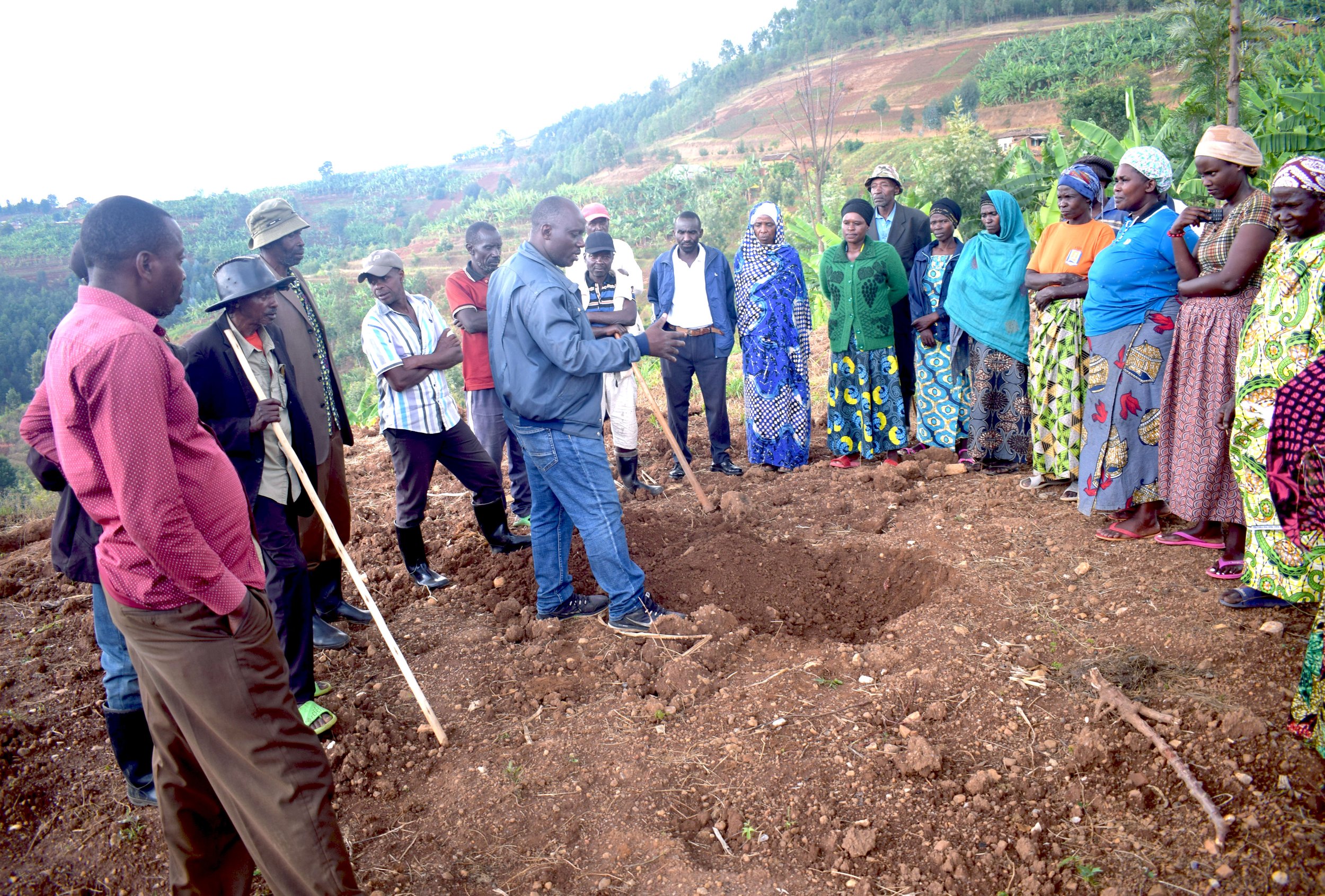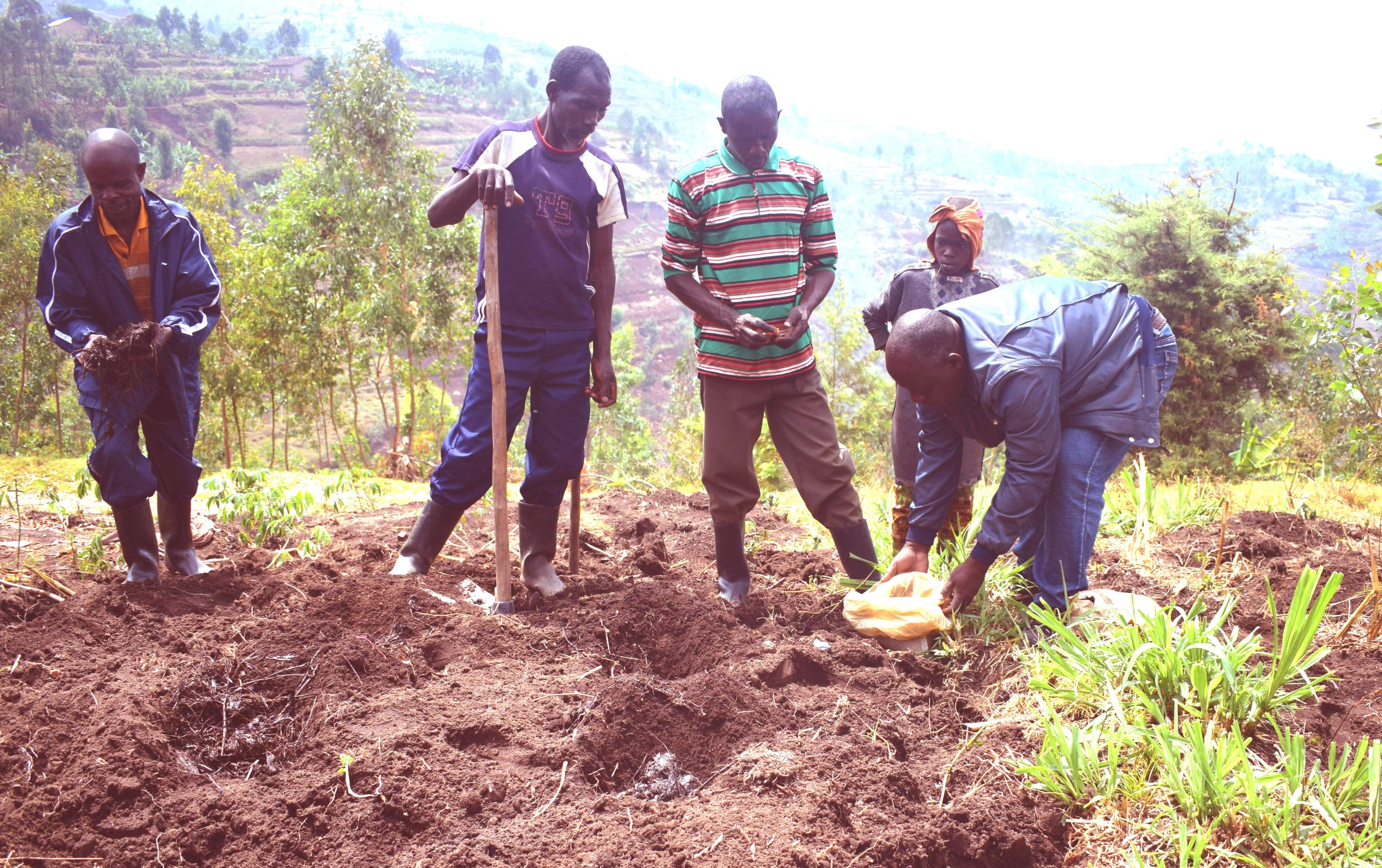How CARSA’s Peace Farming Program bolsters farmers’ livelihoods and Climate-Smart Agriculture
Enabling farmers to adopt climate-smart approaches to farming helps build more sustainable food systems that protect the environment, improve smallholder livelihoods, and create new business opportunities. This is critically important as the world grapples with the combined challenges of climate change and the economic crisis.
For the smallholder farmers CARSA works with, climate-smart agriculture includes the introduction of farming methods like plowing, composting, mulching, crop diversification, pest control, intercropping, and box ridges and furrows to capture run-off and keep moisture in the soil. All techniques help maintain and boost yields while tackling land degradation and improving soil health.
Our approach to climate-smart agriculture helps farmers adapt their farming practices with the targets of increasing their harvests, building their resilience in the face of climate-related shocks, and reducing their impact on the environment.
The facilitator trains the community on how to prepare land effectively.
Rwamucyo Narcisse, a smallholder farmer from Muhanga District, Nyarusange Sector, has been enrolled with CARSA’s Community Peace Farming for 3 years, growing maize, beans, bananas, and cassava. Last year, he experienced climate change-induced extreme weather conditions that caused him to lose half his crop. Despite that, he says he feels encouraged about this coming season because of the new climate-smart practices CARSA recently taught him.
“Making and using compost helps me to retain moisture in the soil and gain more harvest than before while I plant in the traditional way. I usually plant with boxed ridges to save soil moisture. It’s a beneficial tactic for harvest yields”.
The facilitator trains the community on effective way to use compost.
Smallholders like Rwamucyo contribute significantly to feeding their communities. With the right resources, they can not only produce more but also higher-quality crops.
We equip farmers with the method used in composting, which recycles organic matter, such as leaves and livestock waste, into valuable manure. Good composting helps restore soil nutrients and can also help mitigate the impact of the sunny season by helping retain soil moisture.
In Rwanda this year, it has been a shoddier season than usual for Mukayiranga Fortune; the rains came late and were insufficient. “I was trained to make and use compost, which helps with soil moisture retainment, enabling the crop to perform well despite reduced rainfall,” Mukayiranga says. “My neighbors can’t understand why my farm is doing so well, but I share my knowledge with anyone interested.”
To ensure the best practices of climate-smart agriculture and enough open space for farmers, we have established a dedicated model farm known as “MUGINA PEACE FARM”, This field of 9 ha is located in Mugina Sector, Kamonyi District, and is used to showcase how to grow various and principal crops in a monocultural way.
To keep enabling smallholder farmers, CARSA also donates cows and small livestock (goats, rabbits, pigs, and chickens) to needy families in Kamonyi and Muhanga Districts to lift them out of extreme poverty and boost their families' nutrition.
The facilitator trains the community on how to practice climate-smart agriculture.
CARSA equips all individuals who benefit from the livestock provision program with all the techniques needed to practice smart agriculture, mainly including a way to maintain and improve soil fertility and health as well as to make the best use of fertilizer and inputs.
As an agricultural group that plays a crucial role in Rwanda’s economy, smallholder prosperity is essential for the country's overall food security and development. We are excited about the positive impact that our program is creating for farmers and remain committed to finding innovative ways to support their future success.






